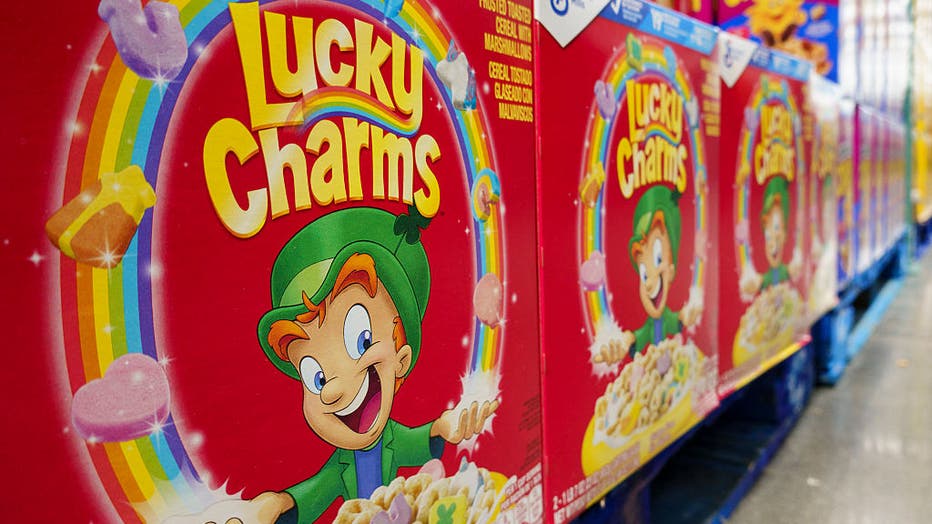Texas Attorney General Ken Paxton (Photo by Robert Daemmrich Photography Inc/Corbis via Getty Images)
Texas Attorney General Ken Paxton has launched an investigation into General Mills, claiming the company illegally misrepresents certain food products as “healthy.”
General Mills investigation

SAN DIEGO, CALIFORNIA – APRIL 4: Boxes of General Mills owned Lucky Charms cereal are stacked at a Costco Wholesale store on April 4, 2025 in San Diego, California. (Photo by Kevin Carter/Getty Images)
What we know:
In a news release on Tuesday, Attorney General Ken Paxton announced that he had sent a Civil Investigative Demand to General Mills.
Paxton claims the company markets cereals, like Trix and Lucky Charms, as “healthy” and a “good source” of vitamins, despite containing petroleum-based food colorings.
The attorney general said that General Mills removed the dyes from six of its cereals, but began using them again two years later.
In the news release, Paxton called for General Mills to sell the cereals without the dyes in Texas and the U.S., like they do in other countries where they are banned.
What we don’t know:
Civil Investigative Demands are typically used before a lawsuit is filed.
It is not clear if Paxton intends to sue General Mills.
What they’re saying:
“Under my watch, big food companies should be on high alert that they will be held accountable if they put toxic ingredients in our food and engage in false marketing,” said Attorney General Paxton. “I’m proud to stand with the Trump Administration and Secretary Kennedy in taking on petroleum-based synthetic dyes and will always fight to protect the health of the American people. That includes working tirelessly to ensure that food products are not illegally and deceptively marketed by corporations, which is why I’ve launched this investigation into General Mills.”
Petroleum-based Dyes
Dig deeper:
Petroleum-based dyes have been under the microscope under new Health and Human Services Secretary Robert F. Kennedy and Food and Drug Administration Commissioner Marty Makary.
Last month, Kennedy and Makary announced a plan to remove the additives by the end of 2026.
READ MORE: FDA aims to eliminate petroleum-based synthetic dyes in food by end of 2026
Nine such dyes have been allowed in U.S. food. Common color additives in food are Blue 1, Blue 2, Green 3, Red 3, Red 40, Yellow 5 and Yellow 6. Two permitted colors are used more rarely: Citrus Red 2 and Orange B.
The FDA recently banned Red 3 from foods and oral-ingested drugs due to cancer concerns. With the FDA’s recent order on Red 3, manufacturers have until January 2027 to remove the dye from their products. Makers of ingested drugs like cough syrups have until January 2028.
Makary has argued that removing synthetic dyes would boost children’s health.
In Canada and Europe — where artificial colors are required to carry warning labels — manufacturers use natural substitutes.
The Source: Information on the investigation into General Mills comes from Texas Attorney General Ken Paxton. Information on petroleum-based dyes comes from the Associated Press, HHS and previous FOX Local reporting.















